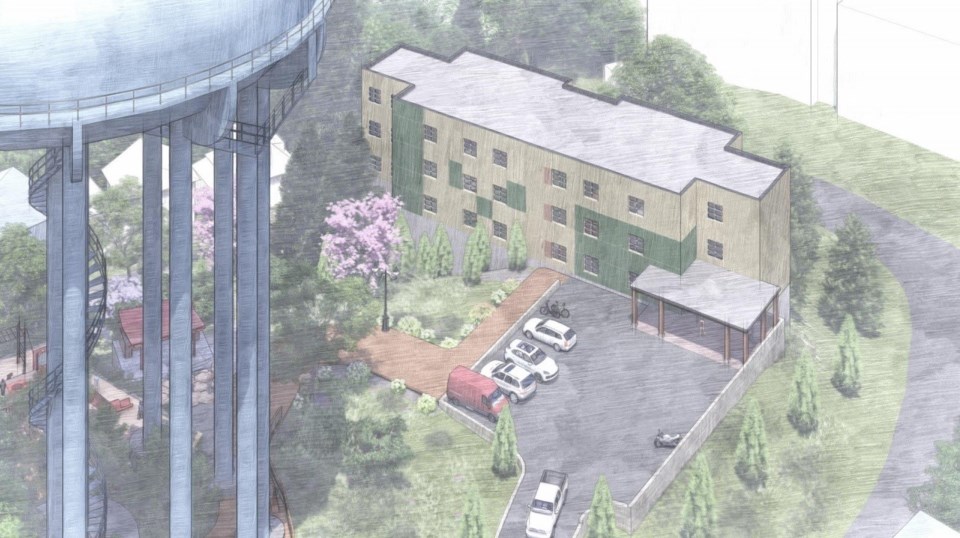Greater Sudbury city council spent much of its first virtual meeting discussing matters related to the COVID-19 pandemic, but there was some other business on the agenda on March 24.
Sudbury Peace Tower Housing Project steering committee chair Michael Cullen gave an electronic presentation on a project that will look to address homelessness in Greater Sudbury.
According to Cullen's presentation, Sudbury currently has a shortfall of 2,000 affordable housing units, and the proposed project would see the construction of at least 38 new units.
While Cullen chairs the project's steering committee, he made a point to highlight the people that are at the core of this proposed project and will be facilitating the governance and operational model of the housing units.
Eileen Mahood, wife of the late Pastor Jeremy Mahood who passed away last year, is at the centre of the project through the I Believe Network, which was established by the couple and operated First Steps for several years, that provided social supports to those in need.
The Peace Tower (formerly the Sudbury water tower) was renamed in honour of Jeremy Mahood last October and Eileen, the vice-chair of the All Nations Family Housing Corporation known as the Landmark, a 64-unit building that houses 32 seniors and 32 families providing 53 rent-geared-to-income (RGI) and 12 market rent units.
The Peace Tower Housing Project is proposing a minimum of 38 units, all RGI and would include community space for the entire neighbourhood and offer other essential services and programs.
It will include green space, community gardens, a playground and other unique outdoor recreational offerings as part of the dedication to the memory of Jeremy Mahood's legacy.
"I'm pleased to share that Eileen will be guiding us through this process," said Cullen.
"She'll be co-chairing alongside myself and a few others to build this charitable model using the I Believe Network as the charitable incubator to see this portion of the funding through and then to build from that to build a collaborative that can sustain this property and those who live in the building itself."
The funding mentioned by Cullen is $5.7 million in Home For Good provincial funding, which will be advanced only upon project completion and occupancy, amortized over a 20-year term.
It will be the responsibility of the proponents to secure financing for the entire cost of the project until completed and occupancy has been granted.
Council did pass a motion on March 24 directing staff to enter into a Home For Good Phase 2 Capital Contribution Agreement to construct affordable housing rental units.
The resolution that was passed has no financial implications to the city, it merely gives them the go-ahead to enter into a capital contribution agreement with the province.
More than two dozen community groups have already pledged their support to the Peace Tower Housing Project, including CMHA (Canadian Mental Health Association), CMHC (Canada Mortgaging and Housing Corporation), Habitat for Humanity, Collège Boréal, Sudbury Wolves Sports and Entertainment, and a number of First Nations.
"I had the pleasure of speaking to Kim Morris at Collège Boréal last night, verifying that they are very keen to see this project as a collaborative," said Cullen.
"That could be in their trades programs, surveying programs, marketing and communications programs, it could also include servicing the clients through experiential learning with Collège Boréal. I sent a message to Daniel Giroux, the president of Collège Boréal and he's engaged so it's wonderful to see a post-secondary alignment."
The collaborative is building, according to Cullen and he expects the list of community groups and individuals who are pledging support will only continue to grow.
Cullen wrapped his presentation with some statistics from the Homelessness Hub, outlining the costs associated with housing for homeless people.
"It costs $40,000 a year to keep someone in a shelter, transitional housing costs up to $18,000 annually, affordable housing, which is this project, costs up to $8,000 annually," said Cullen.
"There's a lot of success stories around Canada - Medicine Hat, Edmonton, Toronto - there are some wonderful stories from overseas such as in Finland, and the number one thing they're doing is housing first. I recall the meeting that Dario (Zulich) and I had, one of the first stakeholder meetings that we had, with Louise Paquette the former CEO of the LHIN and CEO of FedNor and her number one thing was housing."
You can view the full presentation on the Peace Tower Housing Project, including conceptual drawings, here.
